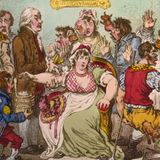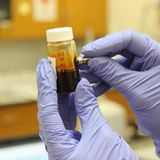RECENT ARTICLES

How Fraud and a Broken Publishing System Fueled the Vaccine-Autism Myth - By Stuart Ritchie - Behavioral Scientist
Psychologist Stuart Ritchie’s new book, , provides an uncomfortable tour of the current state of the scientific system that has provided us with so much—cures for disease, discoveries about ourselves, knowledge of this and other worlds—but is beginning to let us down. And, as you’ll see below, it’s failing us not in insignificant ways. It’s not that something is amiss with science per se, Ritchie writes, but the very human systems in which science takes place.What has caused the breakdown of our scientific ideals and systems? Ritchie identifies the four main culprits—fraud, bias,...…Psychologist Stuart Ritchie’s new book, , provides an uncomfortable tour of the current state of the scientific system that has provided us with so much—cures for disease, discoveries about ourselves, knowledge of this and other worlds—but is beginning to let us down. And, as you’ll see below, it’s failing us not in insignificant ways. It’s not that something is amiss with science per se, Ritchie writes, but the very human systems in which science takes place.What has caused the breakdown of our scientific ideals and systems? Ritchie identifies the four main culprits—fraud, bias,...WW…

We rely on science. Why is it letting us down when we need it most?
Science is suffering from a replication crisis. Too many landmark studies can't be repeated in independent labs, a process crucial to separating flukes and errors from solid results. The consequences are hard to overstate: Public policy, medical treatments and the way we see the world may have been built on the shakiest of foundations.In June, the latest chapter in the saga featured a highly influential study on memory. In 2010, in a blockbuster article in the journal Nature, New York University researchers found that it was possible—without the use of drugs, brain stimulation or anything...…Science is suffering from a replication crisis. Too many landmark studies can't be repeated in independent labs, a process crucial to separating flukes and errors from solid results. The consequences are hard to overstate: Public policy, medical treatments and the way we see the world may have been built on the shakiest of foundations.In June, the latest chapter in the saga featured a highly influential study on memory. In 2010, in a blockbuster article in the journal Nature, New York University researchers found that it was possible—without the use of drugs, brain stimulation or anything...WW…
- Total 2 items
- 1